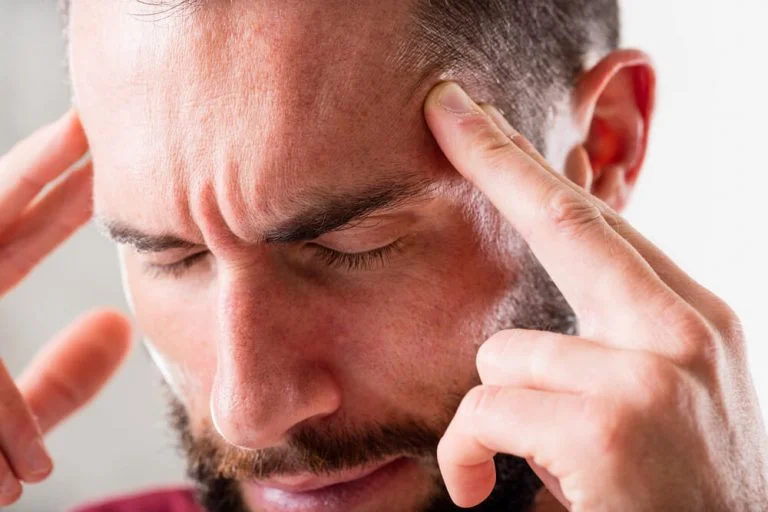All You Need to Know About Quitting Alcohol Cold Turkey
Are you wondering if quitting alcohol cold turkey is dangerous? Learn about the risks, the timeline, and get essential tips for quitting alcohol cold turkey safely.

After reading this article, you’ll have all of the insightful information that will allow you to create a solid plan to tackle this head-on as safely as possible. The path ahead won't be easy, but regaining your life is worth it.
Understanding the Cold Turkey Approach
It's really important to quit unhealthy drinking habits because of the physical effects of alcohol on the body. So, what exactly does quitting alcohol cold turkey entail?
Essentially, it means putting an immediate and complete stop to drinking, going from alcohol intake to zero in one fell swoop. No weaning off period, no tapering - just pulling the ripcord. This may be feasible for some light or moderate drinkers with mild discomfort. But for those deep in the throes of alcohol dependence or alcoholism, detoxing cold turkey can unleash a torrent of highly unpleasant and potentially dangerous withdrawal symptoms, which might also affect your mental health.
The side effects of quitting alcohol cold turkey can be difficult to manage for folks with heavy, long-term alcohol addiction - we're talking about things like intense shakes, relentless nausea and vomiting, crippling anxiety and irritability, days without sleep, nightmares, constant sweating, and an erratic heartbeat. In severe cases, alcohol withdrawal can even trigger life-threatening seizures. It's not exactly a walk in the park, right?
That said, there’s no reason to be scared of getting sober. With the right precautions and an individualized plan, quitting cold turkey could be an option for you.
What to Expect When Quitting Alcohol Cold Turkey: Let’s Go Through the Quitting Alcohol Cold Turkey Timeline
As said before, quitting alcohol cold turkey means stopping drinking all at once, without tapering off. It can be tough because your body and mind are used to having alcohol, so when you suddenly take it away, it can cause some intense reactions.
Even though the alcohol detox timeline isn’t the same for everyone, here’s what you can expect as the most common path on this journey:
|
Timeframe |
Symptoms |
|
First few hours |
Anxiety, shakiness |
|
First day |
Increased anxiety, sweating, nausea, pounding heart |
|
24-72 hours |
Strong cravings, mood swings, hallucinations (severe cases) |
|
First week |
Physical symptoms (tremors, feeling on edge), emotional ups and downs |
|
Second week |
Less physical symptoms, possible anxiety, trouble sleeping |
|
Long term |
Reduced cravings, fading symptoms, adjustment period for body and mind |
Is Quitting Alcohol Cold Turkey Safe? What Are the Risks of Quitting Alcohol Cold Turkey?
For the occasional binge drinker or someone whose alcohol intake is relatively moderate, quitting cold turkey may be doable with just mild discomfort like anxiety, restlessness, and insomnia setting in initially.
For the hardened alcoholic, cold turkey is playing a high-stakes game of Russian roulette with your central nervous system and vital organs. Not ideal for obvious reasons.
Can You Die from Quitting Alcohol Cold Turkey?
Yes, quitting alcohol cold turkey can kill you. The severe withdrawal symptoms for heavy drinkers, especially Delirium tremens (DTs), require medical supervision. Anticonvulsants and other medications are often used to manage these symptoms, and licensed practitioners can monitor vital signs to ensure safety. We're talking about risking dangerous, life-threatening withdrawal symptoms like:
-
DTs with severe confusion and hallucinations
-
Life-threatening seizures from overexcited neurons
-
Intense psychological distress like panic attacks
-
Excessive sweating and irregular heart rates
The smartest approach is speaking to an addiction professional about a medically supervised detox program that gradually weans you off alcohol while managing those gnarly withdrawal effects. It's a slower, more methodical process that maximizes safety and sets you up for long-term sobriety success.
What Is the Most Effective Way to Quit Alcohol Cold Turkey?
|
Category |
Tip |
|
Hydration |
Drink plenty of fluids (water, electrolyte drinks, broths) to flush toxins and avoid dehydration. Avoid alcohol, which dehydrates. |
|
Nutrition |
Stock up on healthy, easy-to-digest foods (fruits, vegetables, soups, shakes) for energy and nutrient replacement. |
|
Symptom Management |
Use over-the-counter meds for headaches, nausea, diarrhea. Consider chamomile tea for anxiety and insomnia. Talk to your doctor about stronger medications if needed. |
|
Environment |
Create a calm, comfortable space free of smoking triggers to reduce stress. |
|
Support System |
Tell loved ones about your goal for encouragement. Attend support groups or counseling for extra help. |
|
Craving Management |
Avoid places associated with smoking. Distract yourself with activities (games, exercise) or talk to a supportive friend when cravings hit. Have a plan for triggers. |
|
Persistence |
Be patient - withdrawal lasts up to a week, mental fog and insomnia may linger for a month. Stay focused on the long-term benefits. |
What Are the Benefits of Quitting Alcohol Cold Turkey?
Looking for extra motivation? Here are some benefits and tips for quitting alcohol: giving up drinking can lead to amazing health improvements, like sharper cognitive function, lower blood pressure, better liver health, and a reduced cancer risk
Think about it - the second you stop drinking, you instantly hit pause on alcohol's toxic takeover of your body. Your liver, heart, and brain all get a well-deserved break from that liquid poison coursing through. Boom - immediate health win!
Then there's the allure of a potentially quicker alcoholism recovery runway. Cut out alcohol completely, and your body can start resetting to sober mode straight away. That abrupt jolt could be just the motivation you need.
Here's a counterintuitive perk, too—quitting cold turkey may help you dodge a prolonged, dragged-out withdrawal period. Sure, the initial detox could be intense, but your symptoms may be shorter-lived than those of a gradual taper.
Quitting Alcohol Cold Turkey vs. Gradual: Which Works Best?
When it comes to kicking an alcohol habit to the curb, should you rip off the band-aid by quitting alcohol cold turkey or taper? It's the great alcohol recovery debate that splits experts and personal experiences alike.
The ones who support the idea of “successful quitting alcohol cold turkey” are those who preach the tough love approach. Abruptly stopping all alcohol shuts off that dopamine reward pathway in your brain, allowing it to reset without any more boozy boosts.
However, the opponents of cold turkey argue that success is often short-lived beyond those first few days or weeks. The intense shock of complete alcohol deprivation sets the body into severe withdrawal mode, hugely increasing the odds of falling off the wagon and relapsing hard.
The Taper Transition involves slowly weaning yourself off alcohol over a set period rather than quitting abruptly. For some, this takeoff makes for a gentler landing... though willpower is still required to avoid turbulence.
The Medicated Road is for those fearing intense withdrawal symptoms; medication-assisted treatment can take a huge load off. Prescription drugs like naltrexone, acamprosate, and disulfiram help curb cravings and ease uncomfortable side effects as you ditch the sauce. Having that pharmaceutical assist makes the detox process much smoother.
For heavy, long-term alcoholics trying to get sober, most addiction experts strongly caution against the cold turkey route without medical supervision due to risks like delirium tremens, and seizures. A gradual, medically assisted detox is considered the safest path.
There's no one-size-fits-all solution. What's most important is finding an alcohol recovery approach you can commit to and stick with. Whether it's a measured taper or a cold turkey wake-up call, achieving lasting sobriety is the ultimate win.
The Sobriety Safety Net: Building Your Quit Drinking Support Squad
Going cold turkey on alcohol is tough and tests your willpower. Having a solid support system is crucial. Rally friends and family to keep you motivated and accountable. Connect with support groups like Alcoholics Anonymous and therapy for invaluable guidance.
For severe dependencies, professional rehab programs offer intensive help to get through withdrawal safely. Heavy drinkers should always seek medical supervision due to dangerous withdrawal risks.
Benefits of Seeking Professional Help
-
Safe, controlled environment with 24/7 monitoring by medical staff
-
Management of withdrawal symptoms and vitals to prevent complications like seizures, delirium tremens, severe dehydration
-
Access to FDA-approved medications to ease withdrawal side effects and cravings
-
Benzodiazepines for anxiety, insomnia, psychological distress
-
Anti-nausea and anticonvulsant medications as needed
-
Individualized treatment plans tailored to your alcohol history and needs
-
Proper nutrition and hydration support
-
One-on-one counseling to identify psychological root causes of addiction
-
Substantially higher success rates for completing detox and avoiding relapse
-
Connection to transitional services like rehab and support groups for aftercare
-
Professional medical supervision to safely guide you through this volatile stage
Establishes a foundation for lasting sobriety and recovery
Resources
Related Articles
Treatment Centers in Ohio









